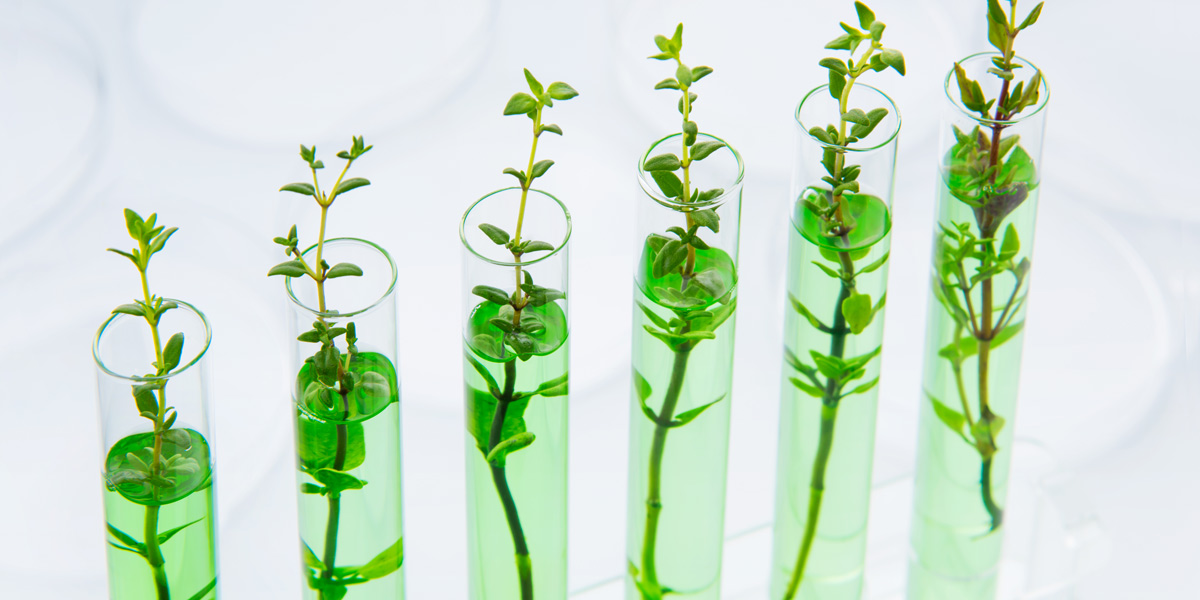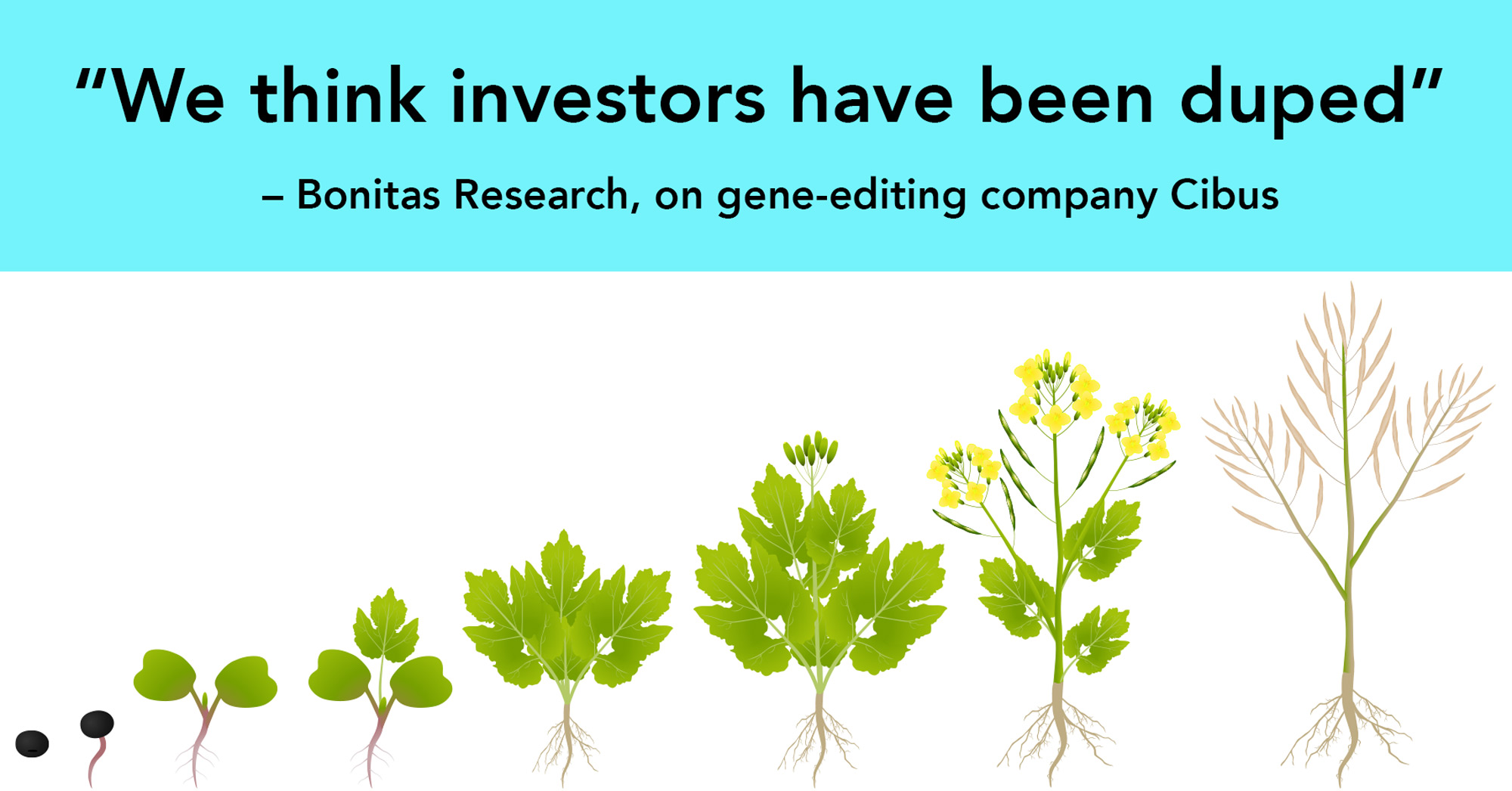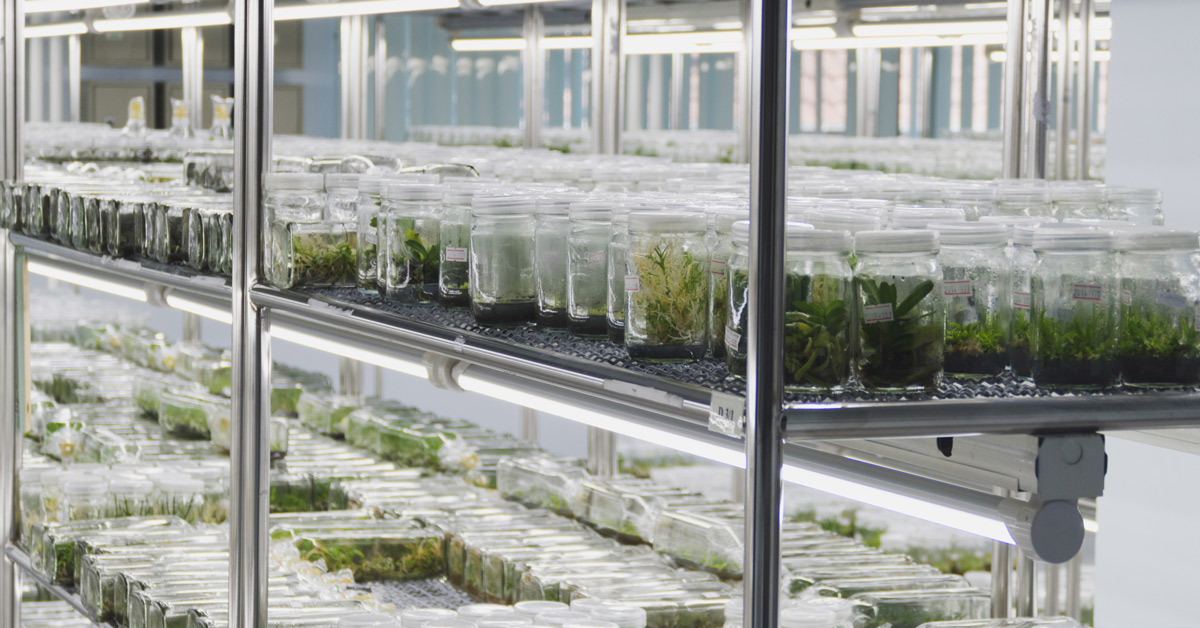Cutting the crap on gene technology
Three articles published over recent weeks and months demolish the EU Commission's and New Zealand government's proposals for deregulating new GMOs made with techniques such as gene editing. They show why the proposals, which would remove safety checks and labelling from a new generation of GMOs, turn their back on scientific knowledge as well as democratic principles. For example, in an excellent and fully referenced article aptly titled "Let's cut the crap on gene technology", molecular biologist Prof Jack Heinemann, himself a genetic engineer who makes extensive use of gene editing, says society should be asking itself why it needs to trade the security of its GMO regulations for unsecured promises from the speculative visions of genetic engineers. Prof Heinemann takes apart four myths that the advocates for deregulation promote to justify their aims and accuses them of "gaslighting the public".
Podcast: Why GMO deregulation is not the way forward – Prof Michael Antoniou
In a podcast interview, molecular geneticist Prof Michael Antoniou talks about GMO myths and truths and why deregulation is not the way forward.
European food businesses call for rigorous labelling of new GMOs
Dr István Nagy, current EU Council President for Agriculture and Fisheries, met with representatives of a business initiative to submit an open letter to EU Member State ministers. The initiative, "Food Industry for Freedom of Choice", calls for rigorous labelling of new GMOs. A total of 376 businesses from the food industry in 16 EU Member States have signed the letter. Among them are renowned industry giants as the REWE Group, the third largest food retailer in the EU; the leading retailer in Austria, SPAR Austria; Europe's largest drugstore chain dm-drogerie markt; and the world's largest organic supermarket chain Biocoop. Across Europe, companies see their entrepreneurial freedom threatened by the EU Commission's plans to deregulate so-called new genomic techniques (NGTs) or new GM techniques. They are therefore appealing to the EU Agriculture Council to stand up for transparency, freedom of choice, and fair competitive conditions along the entire value chain. See also Feed Navigator's coverage of this story.
International conference on the future of the Non-GMO industry
The most important European industry associations of the "Non-GMO" sector will be hosting the "International Non-GMO Summit 2024" in Frankfurt am Main in Germany on 8 October 2024. International experts from politics, business and science will provide information on current important topics and trends in the Non-GMO markets worldwide. The focus will be on the ongoing debate surrounding new genetic engineering and its potential impact on the Non-GMO and organic sectors. The Non-GMO sector sees the basis of its existence threatened by the EU Commission's proposed abolition of labelling, traceability and transparency for most plants produced using new genetic engineering. For a credible Non-GMO label, all parties along the value chain, as well as consumers, must know which products have been made with genetic engineering. The draft presented by the EU Commission in July 2023 for the deregulation of products from new genetic engineering (NGT) techniques not only jeopardises the successful Non-GMO and organic sectors across Europe, but also freedom of choice for European farmers, processors and consumers. Surveys confirm that the absence of GMOs is at the top of consumers' list of expectations for quality products.
Hungarian Presidency minister to open annual Non-GMO summit
István Nagy, Hungary's minister of agriculture and current chair of the EU’s Agriculture and Fisheries Council, will deliver the opening remarks at the international Non-GMO summit (see above).
New evidence shows unintended changes from gene editing are different from random mutations
A new study shows that the use of CRISPR/Cas "gene scissors" causes unintended genetic changes that are different from random mutations. Major structural changes in chromosomes occur much more frequently in the genomic regions targeted by the "gene scissors" than would otherwise be the case. These results also have implications for the risk assessment of plants obtained from new genetic engineering techniques (NGTs). According to the EU Commission and the European Food Safety Authority, unintentional genetic changes resulting from the use of CRISPR/Cas are no different from random mutations. However, the new method of data evaluation used in this study shows that this assumption is wrong.
GMO company Cibus investigated for deceiving investors – GMWatch research cited
The pioneering gene-editing firm Cibus Inc., which only a few months ago made it onto a prestigious list of the "World’s Most Innovative Companies of 2024", is now under investigation by US law firms for deceiving investors. This follows a research report for investors that argued they had been duped by company claims for its "over-hyped" gene-editing technology. Up till now, Cibus and the other US firm that it merged with in 2023 – Calyxt Inc. – have been the two companies most often cited by GMO promoters needing concrete examples of the breakthroughs gene editing can supposedly deliver. But this narrative was thrown into serious doubt when a company called Bonitas Research issued a report stating that it "found no evidence that Cibus’ gene-editing technology brings desirable new crops to market". What Bonitas did report finding evidence of was “farmer complaints of lower crop yields and lost revenues, along with multiple examples of large seed manufacturers and distributors walking away from joint ventures and partnerships with Cibus for a variety of seed types and seed traits”. Bonitas cited GMWatch research in its report.
American biotech lobbyist drives GMO deregulation discussions in UK, EU
An American biotech lobbyist in academic clothing is driving GMO deregulation discussions in the UK and the EU. For around 25 years Jack Bobo has crisscrossed the globe working to influence governments, shape legislation and treaties, and sway audiences and media coverage on the GMO issue. He is now driving discussions on deregulating new GMOs in the UK and the EU. He was named by Scientific American as one of the 100 most influential people in biotech. And that didn't just stem from his gifts of advocacy and persuasion, but his powerful backers, including biotech corporations and a global superpower aggressively promoting GMOs as a key strategic asset. Now the University of Nottingham has made this GMO lobbyist Director of its Food Systems Institute and its “Future Proteins Hub”.
Scientists sound the alarm over outdoor gene editing pesticides
We're used to gene editing being something that's done in controlled and contained conditions in the lab, with just the final product being unleashed in the environment. But coming down the pipeline are pesticides designed to "edit" the genes of organisms out of doors, in the uncontrolled conditions of the open environment. These outdoor-use genetic pesticides are claimed to be more environmentally friendly than chemical pesticides. The problem is that these genetic pesticides could also "edit" the genes of non-target organisms, and so people, animals, and insects in the environment could become collateral damage. And the deregulation of gene editing that is being aggressively promoted around the globe means that these products could be used in open fields with no prior risk assessment, traceability, or monitoring. Sounding the alarm about this "Wild West" scenario is a new study, which finds that exposure to a CRISPR/Cas gene-editing pesticide could unintentionally alter the genes of a wide assortment of non-target organisms, with potentially serious or even fatal consequences. And leading the list of potential victims of unintended gene editing are humans.
EFSA is wrong: New GM plants can't be assumed to be as safe as conventional plants
In July the European Food Safety Authority (EFSA) published its opinion on the French health agency ANSES's evidenced-based position of December 2023, which criticised Annex I of the European Commission's proposal on the deregulation of plants obtained from new GM techniques (new genomic techniques, NGTs). According to Annex I, "category 1" new GM plants (NGT1) can be treated as equivalent to conventionally bred plants – and not be subjected to the risk assessment, traceability or labelling requirements applied for the past decades to other GM plants – based on a few simplistic criteria, such as the number and size of the intended genetic modifications. In a move that came as no surprise, EFSA agreed with the Commission, concluding that new GMOs can be considered equivalent to conventional plants if they correspond to the Annex I criteria. However, this opinion disregards important scientific evidence and seems to be designed to deliver a politically and economically convenient result to suit the interests of the agricultural biotechnology lobby, rather than to protect public health and the environment, write Claire Robinson and Prof Michael Antoniou in a detailed analysis. See also an analysis by Pollinis.
New GMO deregulation file has long been blocked in the Council of the EU; now Hungary puts on the brakes
Euractiv notes that while the European Parliament reached its position on the deregulation of gene-edited plants in February, the file became stuck at the Council of the EU in December. Now the Hungarian Council Presidency is putting the brakes on the file, cancelling a planned meeting in September where national representatives were set to discuss the proposed deregulation. According to ENDS, the cancelled meeting comes after a tumultuous discussion in July, where the Hungarian presidency tabled a "non-paper" (unofficial document) pausing talks on a compromise while reopening questions that were claimed to be settled by the previous presidency.
Hungary raises sensible questions on new GMOs in the Council
GMWatch does not consider that Hungary's questions (see above) – about the criteria for defining category 1 genetically modified plants, the scope of the regulation, and the risk assessment process – are "settled". They have merely been brushed aside by pro-deregulation countries and rapporteurs. Several other countries shared Hungary's concerns.
Committee agrees to extend Swiss moratorium on GMOs until end of 2027
Switzerland's Committee for Science, Education and Culture of the National Council (WBK-N) has agreed to extend the cultivation moratorium on genetically modified plants until 2027 - including those made with new genetic engineering techniques. The next step is for the proposal to be submitted to the National Council and Council of States. The NGO SAG (Swiss Alliance for a GMO-Free Agriculture) welcomed WBK-N's decision, but cautioned: "This may just be a way of waiting for the results of the currently blocked legislative processes [on deregulation of new GMOs] in the EU. Now is not the time to relax - industry's lobbying [for deregulation] is continuing at full throttle in the background." SAG advises Swiss citizens to sign the food protection initiative to help keep Swiss food GMO-free.
New (and dangerous) definition proposed for GM foods in Australia/New Zealand
Foods that do not contain novel DNA will not be considered GM, even though they have been made using new GM techniques, according to new proposals from Food Standards Australia New Zealand (FSANZ). The public consultation period on the proposals has now ended. GMWatch comments that this approach, focusing only on the intended product, ignores potentially harmful unintended changes brought about by the genetic engineering processes used, as well as the unintended effects of the intended changes. The approach therefore poses serious risks to health and the environment.
Podcast: Australia/New Zealand regulator proposes to declare a vast range of GM foods non-GMO
We recommend an excellent podcast discussion of new GM deregulation issues from Physicians and Scientists for Global Responsibility New Zealand. You can hear it here or on Spotify, where we found the audio quality a little better.
New Zealand: Soil & Health against redefining gene tech in food standards
Joining the call for caution when it comes to gene technology, the Soil & Health Association of New Zealand has officially submitted its response to Food Standards Australia New Zealand, rejecting Proposal P1055. Farmers Weekly New Zealand says the proposal seeks to change the definition of genetic engineering technologies used in food production, to accommodate new technologies and regulate foods according to the risk they pose – but GMWatch comments that the proposal would weaken the risk assessment based on evidence-free assumptions about safety. The association also urges Food Standards Australia New Zealand (FSANZ) to extend the consultation period by at least a month to allow for sufficient time to make submissions. “Redefining gene technology to exclude new breeding techniques (like gene editing) without proper labels and safety checks threatens our ability to choose what we eat. We stand for transparency and informed choices in food consumption, not ambiguity,” Charles Hyland, soil scientist and co-chair of the Soil & Health Association, said.
UK: The Genetic Technology Act – does change begin right now?
In July, the UK's general election gave a rare window of opportunity to put the issue of genetically engineered food in the UK food system in front of would-be MPs and demand that they take action. Before the election was called, the government was in the process of introducing new regulations to the Genetic Technology (Precision Breeding) Act that would make it fully operational. That process was put on hold for the election. The question now is whether the new Labour government will pick up where the Tories left off or will it pause, review and rethink – as it indicated it would do when in opposition. Beyond GM reports.
UK: First GM gene-edited wheat harvested from trials
Gene-edited wheat and barley varieties are expected to be grown on commercial farms in England as early as 2026, according to Farmers Weekly. The article says, "This comes after trial plots of one wheat variety were successfully harvested at the John Innes Centre near Norwich. And two further cereal varieties being grown in glasshouses at Rothamsted Research are due to be harvested this autumn. Seed from all three will be multiplied up during 2025 and grown on commercial farms alongside control plots in further trials in 2026 to establish their potential." GMWatch comments that if things go according to plan, the UK wheat supply will be in danger of being contaminated with GMOs that have not been tested or assessed for safety. The three cereal varieties are low asparagine wheat, another wheat claimed to have bigger grains, and a barley aimed at lowering livestock methane emissions (something that can be accomplished in cattle by feeding algae supplements).
Resources on new GM
GMWatch has compiled a list of resources on new GM techniques, such as gene editing, and why it's a bad idea to deregulate them.
..................................................................
We hope you’ve found this newsletter useful. Please support our work with a one-off or regular donation. Thank you!

















